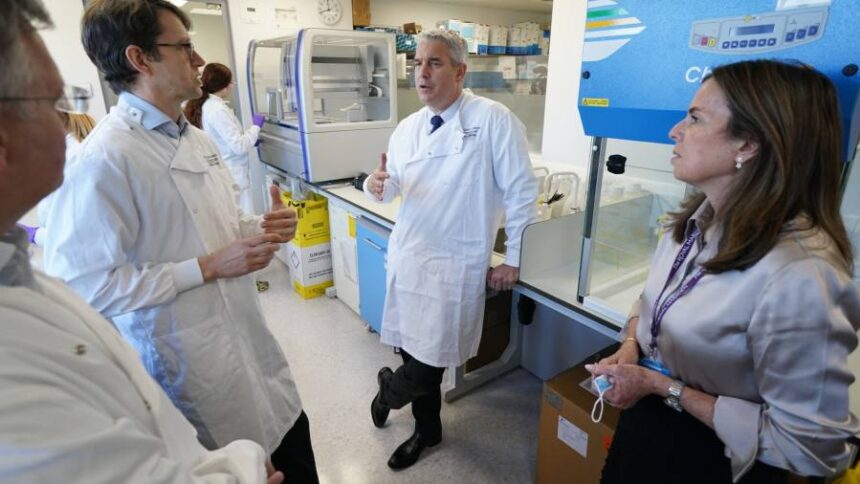Receive free UK politics updates
We’ll send you a myFT Daily Digest email rounding up the latest UK politics news every morning.
UK ministers and NHS leaders have been warned against proposals to “fiddle around with targets” for cancer care instead of increasing treatment capacity, as the government insisted changes were being “driven by” senior clinicians.
Health secretary Steve Barclay on Monday hinted that revised targets were imminent, acknowledging that the government had been “consulting on changes”.
His remarks followed a report in The Sunday Times that seven cancer waiting time targets would be dropped in coming days, leaving three key pledges.
Barclay did not confirm specific revisions but told the BBC’s Today programme: “Any changes will be those where it’s been requested by clinical specialists within the cancer field and will be in consultation with the leading cancer charities.”
Wes Streeting, shadow health secretary, accused the government of “cynically moving the goalposts” after having missed its existing targets.
“The Conservatives have created a crisis in cancer care, leaving patients waiting dangerously long,” he said, adding that if UK prime minister Rishi Sunak could not cut waiting times, “then what is the point of him?”.
The proposals were also criticised by Pat Price, visiting oncology professor at Imperial College London and co-founder of the Catch Up with Cancer campaign.
“Is it really the best the government and senior NHS leaders can do, is fiddle around with targets in the midst of this crisis?” she told the Today programme, describing the NHS’s current performance on cancer care as “shockingly bad”.
She add that she was “deeply worried” because “the clear and simple truth is that we are not investing enough in cancer treatment capacity”.
Price added that she and colleagues had “some very good ideas of how we can increase this capacity, get some wins quickly, move this dial”, but that Barclay had refused to meet them, despite “many” requests.
Asked about Price’s claim, Barclay said he was “very happy to have a meeting”.
A consultation has been running since last year on a new “faster diagnosis standard”, which outlines a 28-day target for patients with urgent referrals to receive a diagnosis or have cancer ruled out.
In addition, NHS England is expected to retain the target that patients with cancer should start treatment within a month of agreeing a treatment plan — the so-called 31-day decision to treatment standard.
A third target holding that patients who have been diagnosed will start treatment within nine weeks of their referral date — the so-called 62-day standard — is also expected to stay.
However, the two-week urgent referral from a GP to a specialist for suspected cancer and the two-week maximum wait for breast cancer patients to see a specialist are among the targets to be abandoned by NHS England, according to The Sunday Times, after some clinicians claimed they slowed treatment.
Senior clinicians have argued the current two-week wait goal, from a patient receiving a GP referral to seeing a specialist, does not include an expectation of when patients should receive test results or a confirmed diagnosis.
Barclay will have the final say on any changes once the recommendations of the consultation are published, which is expected later this week.
Currently, there are 10 key cancer performance targets, but many have not been met for a long time. Last year, researchers found the UK lagged many comparable countries in cancer survival rates.
Cancer Research UK, a charity, previously backed the proposed changes, arguing they amounted to more meaningful targets.
Professor Sir Stephen Powis, NHS England national medical director, said the proposals had been “put forward by leading cancer experts” and would ensure “more patients are diagnosed and treated as early as possible”.








